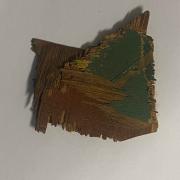With aesthetic treatments now more widely accessible, being wary of unregulated practitioners offering cheap, quick fix cosmetic work is more important than ever.
Thanks to new legislation, the government now has the power to require the licensing of non-surgical treatments to ensure public safety.
Kelly Richardson, a chartered legal executive at Kent law firm Furley Page, explains what the Health and Care Act 2022 means for the aesthetics industry and what you can do if you’ve been affected by a harmful procedure.
Q: What is the purpose of the Health and Care Act 2022 and when does it come into effect?
A: The Health and Care Act 2022 received royal assent and became law in April 2022 with the purpose of introducing significant reform to the whole organisation and delivery of health and care services in England. The legislation gives the government the authority to introduce a licensing scheme for practitioners who perform non-surgical procedures. However, it is still unclear what this scheme will look like as it has not yet been introduced.
The Health and Care Act 2022 aims to protect the public by enforcing consistent clinic standards and reducing the risk of poorly performed procedures.
Q: What type of cosmetic treatments are included in the new legislation?

A: The Health and Care Act 2022 has quite a broad definition of cosmetic treatments, including:
- the injection of a substance, such as fillers;
- the application of any substance that can penetrate the epidermis;
- the insertion of needles or placing of threads under the skin;
- the application of light, electricity, cold or heat, which includes treatments such as hair removal and chemical peels.
Q: Have you seen an increase in the number of people seeking damages for cosmetic treatments?
A: The vast majority of people now spend a significant amount of time on social media and our online profiles are inevitably available to be scrutinised.
When many of the reputable cosmetic clinics were closed during the Covid-19 lockdowns, many people were seeking quick fix, ‘at home’ treatments by practitioners with limited or no qualifications. The practitioner would perform unsafe procedures in their own home without the required training, experience and insurance. This in turn has led to an increase in personal injury claims.
Unfortunately, we have advised clients who have faced a wide range of problems following unlicensed cosmetic work, including adverse reactions, scarring, burns and infections, as well as psychological harm.
It’s really quite depressing how often, despite a clear cut, strong claim, the victim receives not a single penny in compensation, due to unscrupulous practitioners having no insurance, insufficient means to pay or even disappearing.
Q: What are the options for someone who has suffered physical or psychological harm from beauty treatments?

A: If someone has suffered a physical injury or adverse psychological effects as a result of a beauty treatment or cosmetic procedure, they may be entitled to claim financial compensation.
Although this is not going to take away the harm they have suffered, the compensation can provide financial support for any future treatments, surgery, therapy or care required following the unsafe treatment. The claimant may also be able to claim for any financial losses resulting from the injury or harm; for example, if they were unable to work because of a facial disfigurement, they could claim for their loss of earnings.
Q: Is there a time limit for making a claim?
A: Yes. The time limit is three years from the date of the injury or negligence. For example, if you have had filler which has caused harm, the claim must have been settled or court proceedings must have been issued within three years from the date it was administered to protect the claim from being time barred.
Q: What advice would you give to someone thinking about getting treatment?
A: I would advise them to do their research and check that the practitioner has the proper medical qualifications and insurance before committing. This is vitally important because if something did go wrong, the practitioner will have adequate medical training to assist and the insurers have the means to pay compensation.
Don’t be afraid to ask to see proof of their qualifications and if you have second thoughts, do not commit. It’s also important to try to avoid being enticed by cheap prices, as this could indicate that the products being used are unsafe.
Furthermore, beauty salons and practitioners will often ask a customer to sign a consent form or a waiver. This is intended to indemnity the salon for any injuries that result from the procedure. However, these waivers do no such thing and are ultimately a worthless attempt to deter the customer from taking legal action.
Q: Why seek help from Furley Page?
A: At Furley Page, we are a team of experienced, local lawyers who always provide clear, straightforward legal advice. We ensure that all our clients can speak to us directly and avoid excessive caseloads so that we can offer a personal, bespoke experience and ensure our clients get the compensation they deserve.
If you need to make a personal injury claim, contact Kelly Richardson on 01227 763939 or visit furleypage.co.uk for more information.











![The torchlit Wassail procession makes its way to the New Ash Green Community orchard [Photo courtesy of New Ash Green Woodlands Group]](/resources/images/128x89/1x/17558355.jpg)
![The torchlit Wassail procession makes its way to the New Ash Green Community orchard [Photo courtesy of New Ash Green Woodlands Group]](/resources/images/180x180/1x/17558355.jpg)














